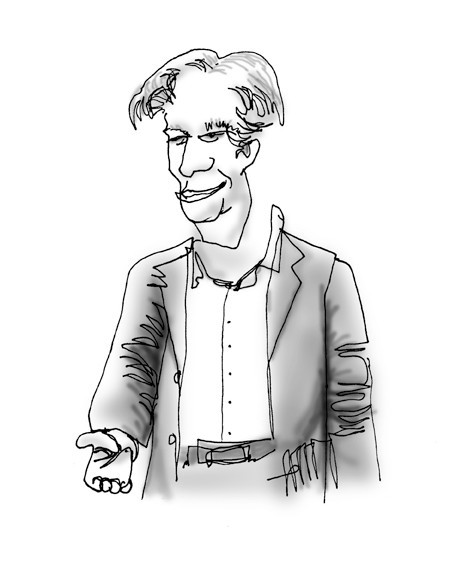What Doer did
The teeter-totter of post-secondary funding
As Premier Gary Doer nears the end of his time in office, student leaders are lamenting the changes that have been made to the government’s post-secondary education policies since they took power a decade ago.
“He started out strong but he’s kind of lost focus,” said David EisBrenner, vice-president advocate of the University of Winnipeg Student’s Association.
Gary Doer and the NDP won power in 1999, in part on a promise to increase funding for education after years of education spending cuts by Gary Filmon’s Progressive Conservatives.
Immediately, the NDP froze tuition fees and in 2000 they cut fees by 10 per cent. At the same time, they steadily increased funding for post-secondary education.
“I think their decision to fund post-secondary education the way they did is one of the best decisions they’ve made,” said EisBrenner.
That was then. In 2002, the province exempted international students from the tuition freeze and their fees have risen every year since.
“There’s a perception that’s been created that international students can make up for the gap in funding and that’s an incredibly unfair assumption,” said EisBrenner.
Other measures, like the 60 per cent tax rebate on tuition for graduating students who stay in the province, have been criticized as doing nothing to improve access to education for marginalized groups like low-income and aboriginal students.
The Ben Levin Commission on Tuition Fees and Accessibility is one of those critics. Last year they released a report that recommended the government move away from “ineffective” tax-credits and instead increase funding for post-secondary education by five per cent each year.
But Jonny Sopotiuk, Manitoba chair of the Canadian Federation of Students, said the government has only acted on one recommendation – to lift the tuition freeze – which they did late last year.
“[Levin] said that the government should act on some of these [funding] measures first, as they will provide the safety net for students from lower- and middle-income families before tuition fees were to go up. And tuition fees went up before the safety net was put in place,” said Sopotiuk.
Sopotiuk said that Levin recommended the government should pay attention to the effect the raise in fees would have on students. He notes that Levin wanted to see a safety net of increased funding before the freeze was taken off, but failed to see it happen.
“We imagine this year we’re going to see a lot of students falling through the cracks,” Sopotiuk said.
Not all students think Doer has gone in the wrong direction on post-secondary education. Devin King graduated with an education degree from the University of Winnipeg last year. He said the tax rebate is his favourite decision the government has made on post-secondary education.
“I know some critics say it’s after-the-fact… but for me it’s been good,” he said.
Others are surprised by recent decisions by the Doer government.
“[Lifting the tuition freeze] seemed to be not a really NDP thing to do,” said Stuart McLaren, a conflict resolution student at the U of W.
Sopotiuk said students should recognize that the government maintained the freeze for nine years and increased funding to universities during that time. They also opened the University College of the North.
“So there have been some positive results and good measures that Premier Doer has implemented during his tenure, but I think the overall message is that he just didn’t go far enough and didn’t go far enough for students and for families in Manitoba,” said Sopotiuk.
Published in Volume 64, Number 2 of The Uniter (September 10, 2009)







